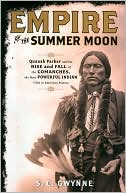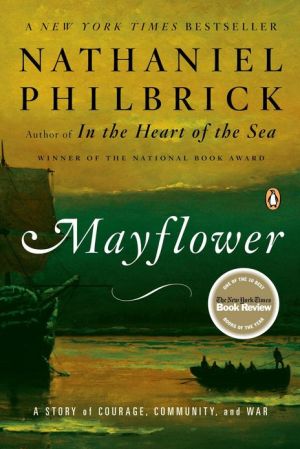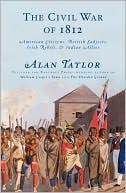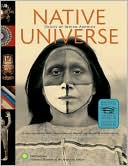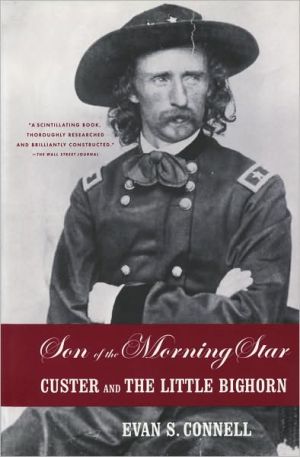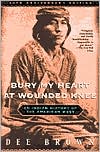Colonial Intimacies: Indian Marriage in Early New England
In 1668 Sarah Ahhaton, a married Native American woman of the Massachusetts Bay town of Punkapoag, confessed in an English court to having committed adultery. For this crime she was tried, found guilty, and publicly whipped and shamed; she contritely promised that if her life were spared, she would return to her husband and "continue faithfull to him during her life yea although hee should beat her againe. . . ."These events, recorded in the court documents of colonial Massachusetts, may...
Search in google:
In 1668 Sarah Ahhaton, a married Native American woman of the Massachusetts Bay town of Punkapoag, confessed in an English court to having committed adultery. For this crime she was tried, found guilty, and publicly whipped and shamed; she contritely promised that if her life were spared, she would return to her husband and "continue faithfull to him during her life yea although hee should beat her againe. . . ." These events, recorded in the court documents of colonial Massachusetts, may appear unexceptional; in fact, they reflect a rapidly changing world. Native American marital relations and domestic lives were anathema to English Christians: elite men frequently took more than one wife, while ordinary people could dissolve their marriages and take new partners with relative ease. Native marriage did not necessarily involve cohabitation, the formation of a new household, or mutual dependence for subsistence. Couples who wished to separate did so without social opprobrium, and when adultery occurred, the blame centered not on the "fallen" woman but on the interloping man. Over time, such practices changed, but the emergence of new types of "Indian marriage" enabled the legal, social, and cultural survival of New England's native peoples. The complex interplay between colonial power and native practice is treated with subtlety and wisdom in Colonial Intimacies. Ann Marie Plane uses travel narratives, missionary tracts, and legal records to reconstruct a previously neglected history. Plane's careful reading of fragmentary sources yields both conclusive and fittingly speculative findings, and her interpretations form an intimate picture, moving and often tragic, of the familial bonds of Native Americans in the first century and a half of European contact. Booknews Drawing on travel narratives, missionary tracts, and legal records, Plane (history, U. of California-Santa Barbara) examines the interplay of colonial power and native practice in the changing marriage customs of native Americans in New England. Indian marital relations, diverse themselves, were quite different from those of Europe, but Plane argues that the new types that emerged enabled the legal, social, and cultural survival of the peoples. Annotation c. Book News, Inc., Portland, OR (booknews.com)
List of IllustrationsviiiPrefaceixProloguexviiIntroduction11."Amongst their nation"142."My heart did love the having of two wives"413."They had made a Law against it"674."In their Families"965."They ... take one another without Ceremony"1296."At the Marriages of their Sachems"153Conclusion178Abbreviations183Notes185Index245
\ From the Publisher"Viewing the inhabitants of early New England-natives as well as newcomers-through the lens of marriage, this extraordinary book opens up new vistas onto a time and place we thought we knew, and knew well. Ann Marie Plane's imaginative use of intractable sources gives colonization a human face; through her tales of love (and lust), of loss (and gain), she gives voice to people long silent, bringing these obscure folk not only to light, but also to life. Colonial Intimacies will change the way we think about New England and early America, about the colonizer and the colonized, and about families from the Puritans' day to our own."-James H. Merrell, Lucy Maynard Salmon Professor of History, Vassar College\ "The research behind this book is excellent. Ann Marie Plane demonstrates a great skill in her elucidation of specific court cases. By doing so, she shows us the real tensions that existed within families, and between families and communities, in the different populations of early New England."-Peter C. Mancall, University of Kansas, author of Deadly Medicine: Indians and Alcohol in Early America\ "Colonial Intimacies makes an important contribution to the history of early New England by adding a multicultural emphasis hitherto absent from social and family historical studies in the region. Ann Marie Plane has imaginatively conceptualized her book and the multicultural emphasis yields significant results-some of her insights, informed by her careful reading of anthropology and feminist scholarship, are remarkable. This is a fascinating book."-Mary Beth Norton, M.D. Alger Professor of American History, Cornell University\ "Plane does a wonderful job of reading closely Indian conversion narratives and court cases for telling hints of how the Puritans transformed Indians into an immoral and inferior subclass residing on the periphery of New England society. . . .This is an innovative and important work, and students of the ethnohistory of early New England will need to have a look."-Michael Leroy Oberg, SUNY, Geneseo. American Historical Review, December 2001\ "In this historiographical context, three genuinely inspired ideas drive Ann Marie Plane's fascinating study of Native American conjugal relations in the seventeenth and early eighteenth centuries."-Daniel K. Richter, University of Pennsylvania. Reviews in American History, Vol. 29, No 4, 2001\ "Colonial Intimacies is a welcome addition to New England family history, providing a multicultural dimension to a field largely centered on Puritan households. . . Her engaging text draws readers into a complex world of human relationships, with all the messy complications life can offer. Not the least of Plane's accomplishments is her ability to put a face on the impersonal forces of colonialism."-Melanie Perreault, Salisbury University. William and Mary Quarterly, January 2002\ "Ann Marie Plane takes an original approach to the subject of English-Indian relations in colonial America by focusing on marriage. . . Plane reinterprets colonial New England's history by concluding that the English cultivated the idea of Indians as culturally different to keep Indians on the margins of English civil society. . . This interesting argument allows Plane to formulate valuable, far-reaching insights into what marriage is and how it works. . . The book is most illuminating. . . in explaining how English colonists understood and used cultural differences to create a sense of themselves."-Nancy Shoemaker, University of Connecticut. Journal of American History, December 2001\ "Case studies support the author's conclusions and provide examples of real people trying to adjust to a foreign order. Recommended for undergraduate Indian and Colonial history collections."-Choice, March 2001\ "Anne Marie Plane's Colonial Intimacies: Indian Marriage in Early New England offers a treasure of evidence and anecdotes about Native American women's and family history, reflecting years of dedication to researching a notoriously difficult subject."-Eric Arnesen, University of Illinois at Chicago, Law and History Review, Fall 2003\ \ \ \ \ \ BooknewsDrawing on travel narratives, missionary tracts, and legal records, Plane (history, U. of California-Santa Barbara) examines the interplay of colonial power and native practice in the changing marriage customs of native Americans in New England. Indian marital relations, diverse themselves, were quite different from those of Europe, but Plane argues that the new types that emerged enabled the legal, social, and cultural survival of the peoples. Annotation c. Book News, Inc., Portland, OR (booknews.com)\ \


